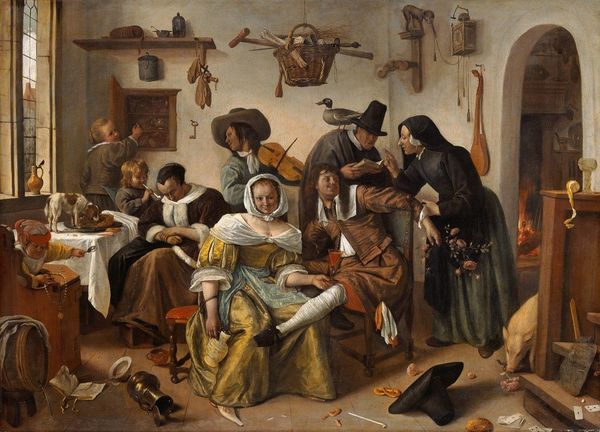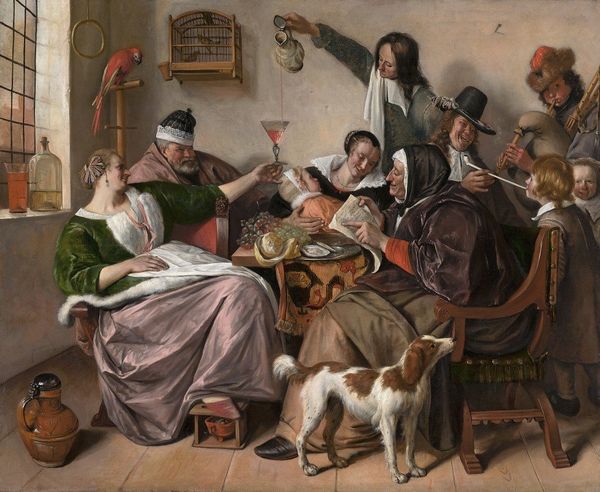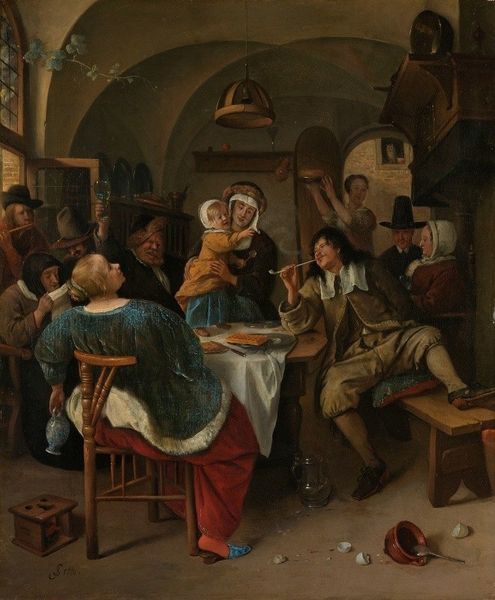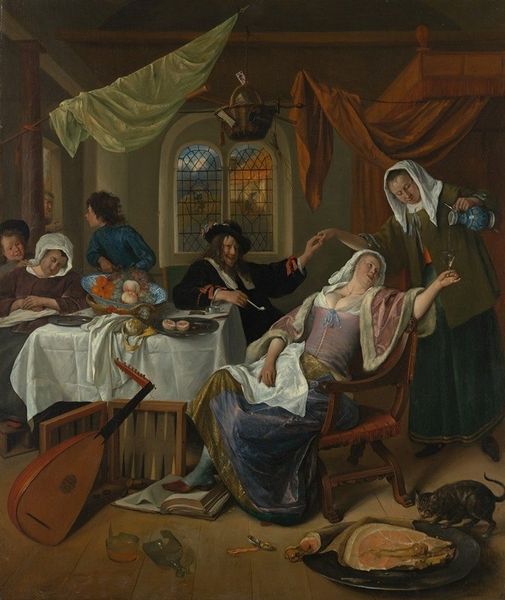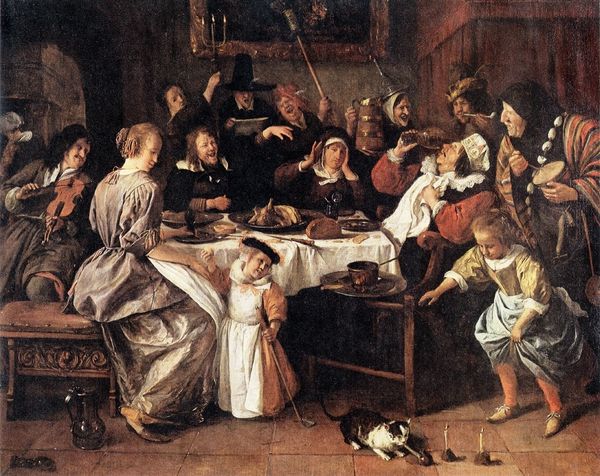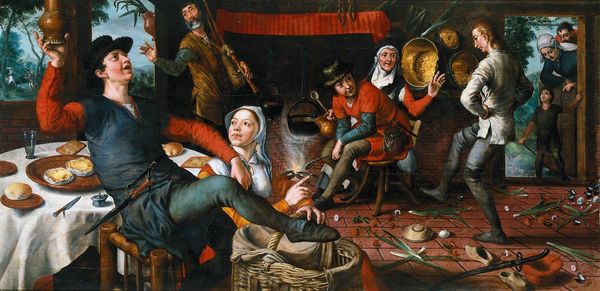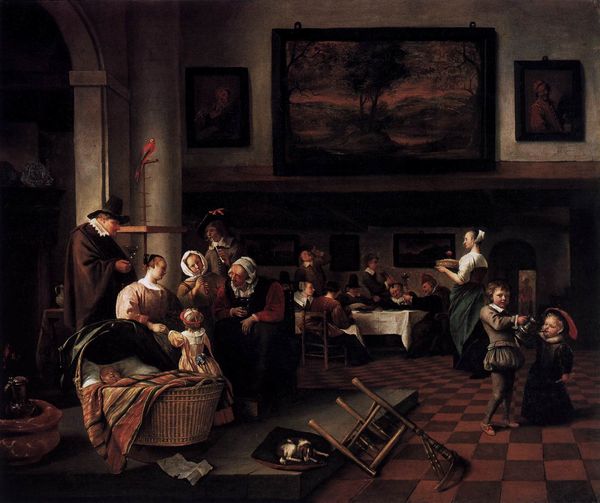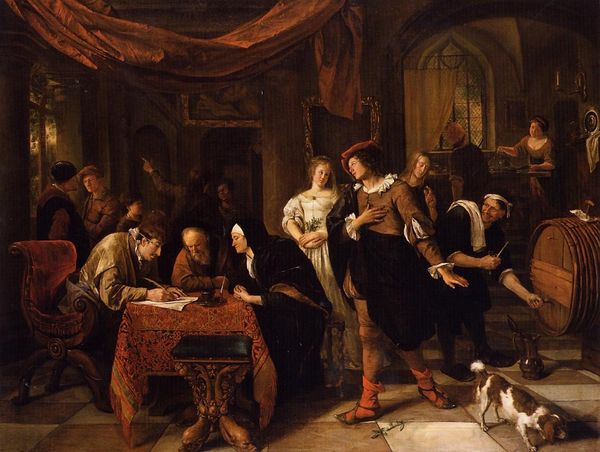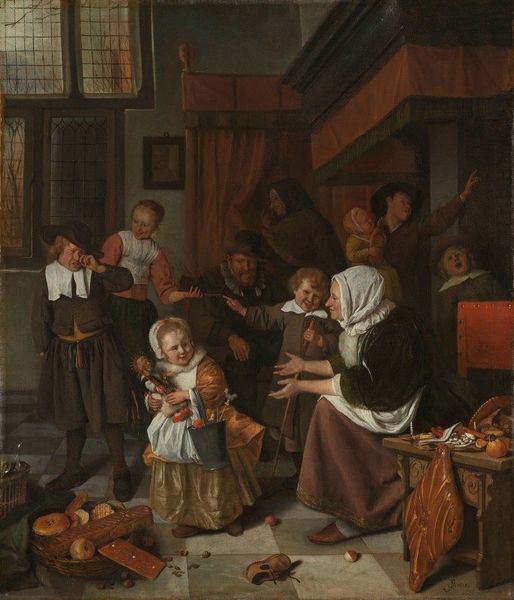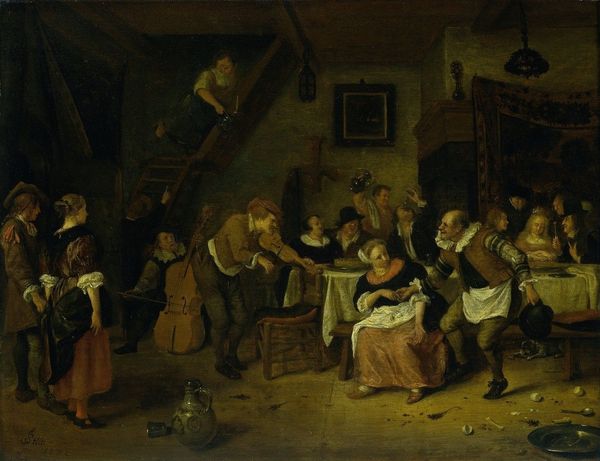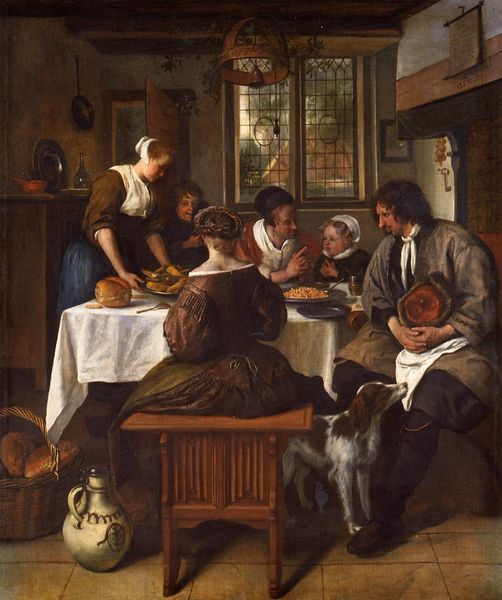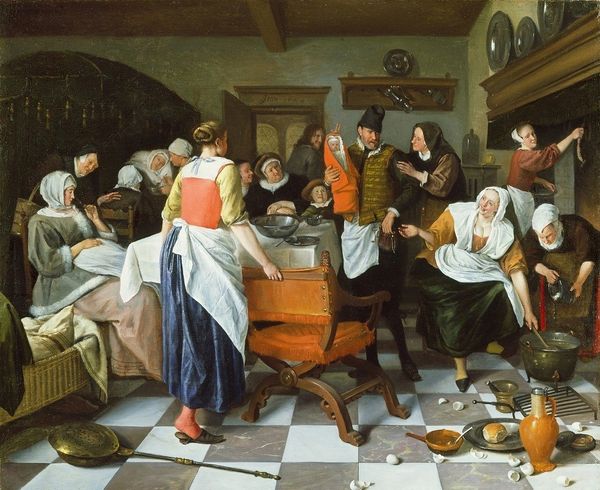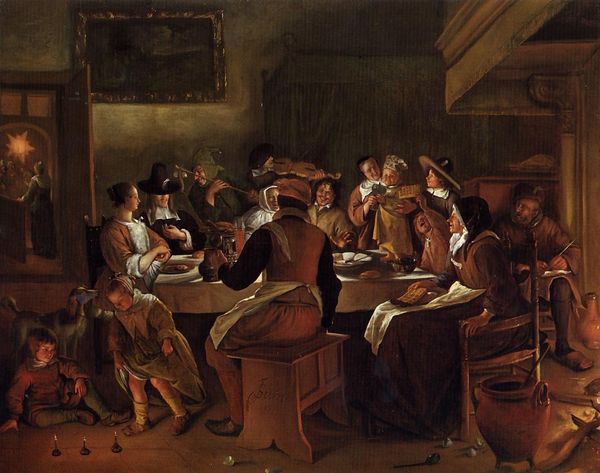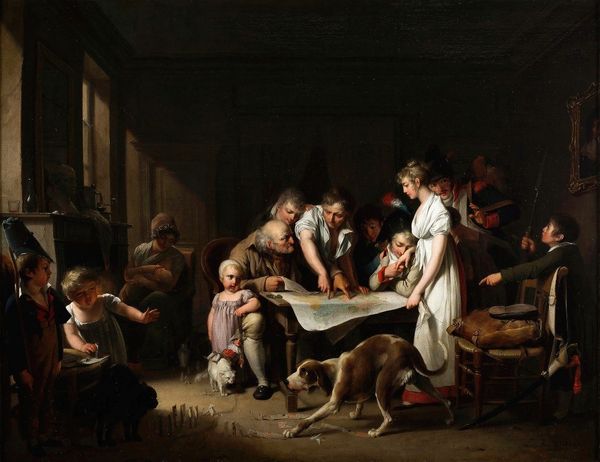
painting, oil-paint
#
dutch-golden-age
#
painting
#
oil-paint
#
figuration
#
oil painting
#
group-portraits
#
genre-painting
#
realism
Copyright: Public Domain: Artvee
Jan Steen’s "The Merry Family," painted in the Dutch Republic, presents a scene of domestic chaos. But what does the image tell us about the society that produced it? This painting, teeming with life, reflects the buoyant economy of the 17th-century Netherlands, a golden age of trade and prosperity. Yet, beyond the surface of merriment, the painting subtly comments on the social codes of the time, particularly around family and morality. Steen uses visual cues, such as the discarded items and the unruly behavior of the children, to present a cautionary tale. The flying sheet music could symbolize the fleeting nature of pleasure. The influence of Calvinism, with its emphasis on order and discipline, is palpable, making the scene a commentary on the potential pitfalls of excess. By studying period literature, household inventories, and religious tracts, we can understand how Steen's painting engaged with, and perhaps critiqued, the domestic ideals of his time. Art, in this context, is more than just an image; it’s a historical document.
Comments
rijksmuseum over 2 years ago
⋮
This boisterous family is making a lot of noise: the father sings at the top of his lungs while raising a glass; the mother and grandmother chime in; and the children are either blowing into a wind instrument or smoking a long pipe. The note hanging from the mantelpiece gives away the moral of the story: ‘As the old sing, so shall the young twitter.’ What will become of the children if their parents set the wrong example?
Join the conversation
Join millions of artists and users on Artera today and experience the ultimate creative platform.
